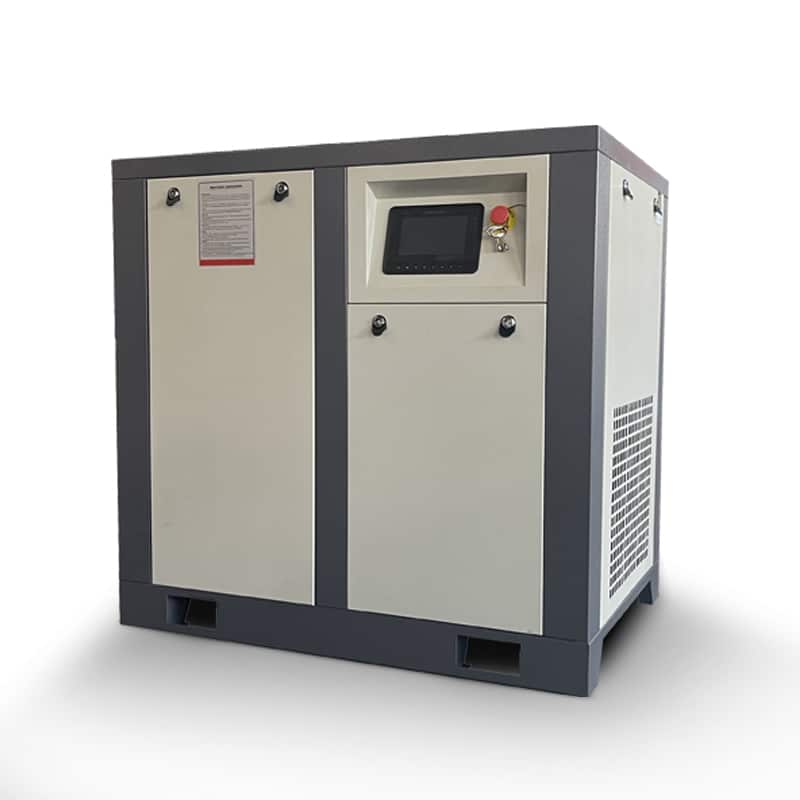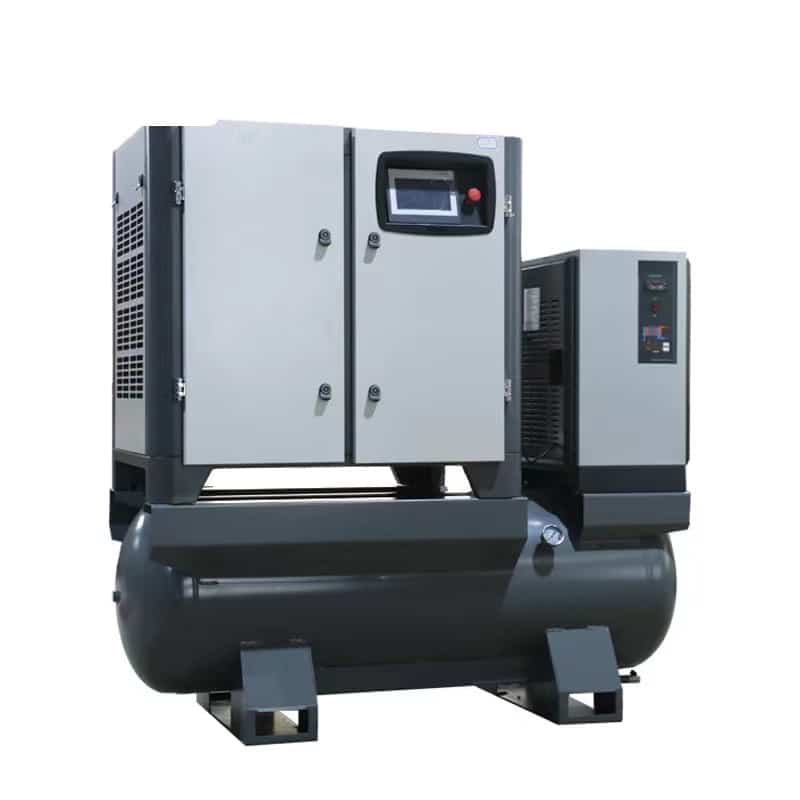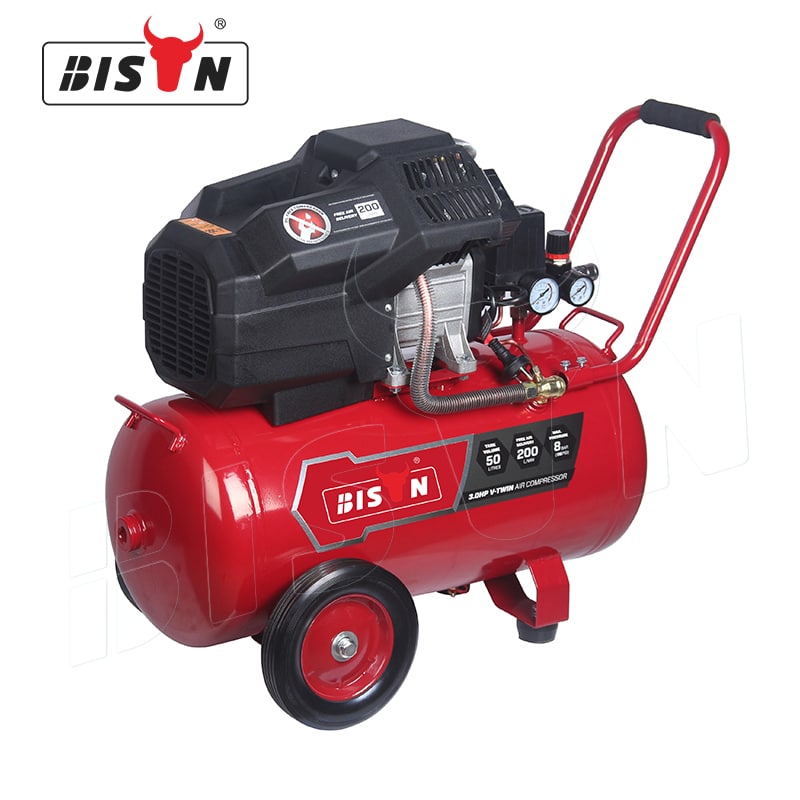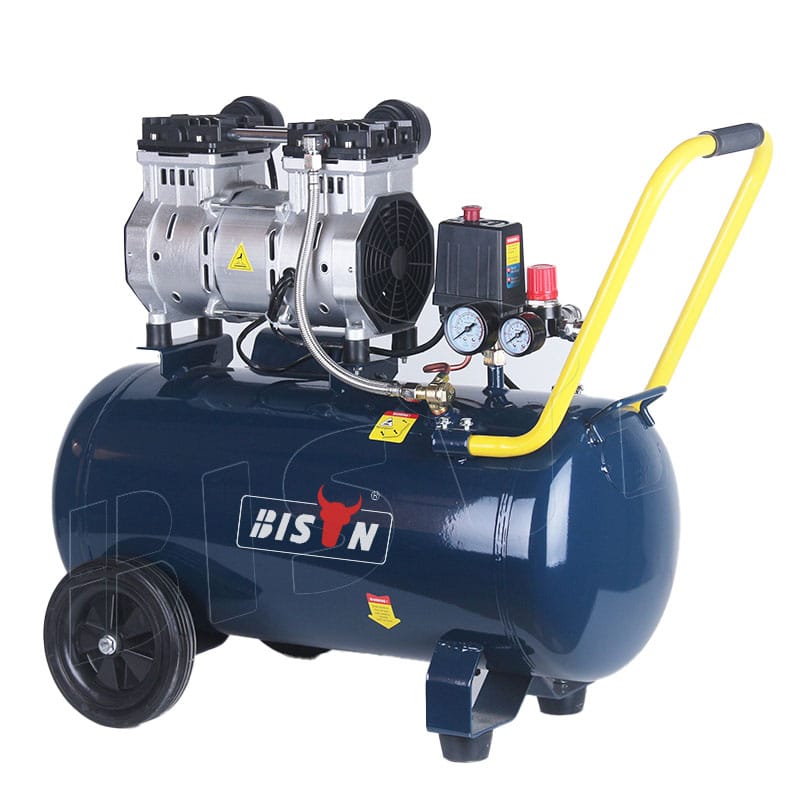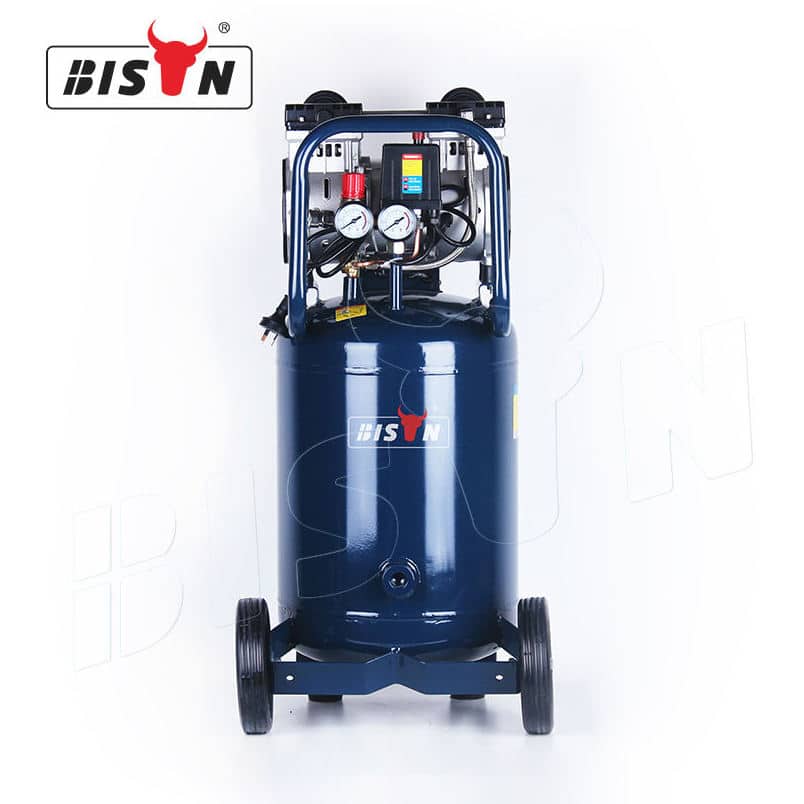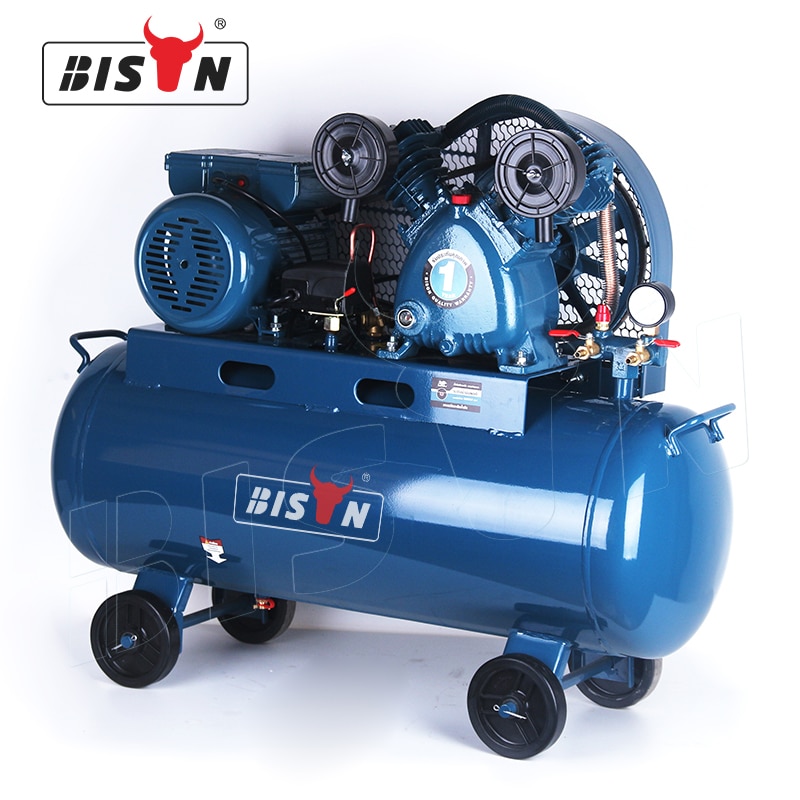blog sur les compresseurs d'air
How to Keep Air compressor avoiding rust
- Août 18, 2023
Air compressors are versatile solutions that form the backbone of several industries. These versatile and essential machines power a variety of tools and processes, from pneumatic drills on construction sites to painting equipment in auto shops. With proper maintenance, your air compressor can keep running smoothly for many years. However, air compressors face a constant threat that can significantly reduce their lifespan and efficiency: rust. The biggest threats to air compressors are rust and water. Over time, a rusted storage tank can become over-pressurized and dangerous. At BISON, we’re here to teach you why rust builds up on your air compressor and how to clean it to keep your workers safe.
Why is there rust on the compresseur d'air

Rust is the common name for iron oxide, which forms when iron or ferrous alloys, such as steel, are exposed to oxygen and moisture for long periods of time. At the beginning of an air compressor product life cycle, there is very little water inside the machine. However, when you use your air compressor more often, the chemical reaction between hydrogen and oxygen creates water, which interacts with the iron in the réservoir de compresseur d'air. The longer an air compressor runs, the more water it may contain. Most of the condensate leaves the tank through the nozzles, but about 10% condenses and becomes liquid in the tank.

Your tank may look spotless and healthy on the outside, but as long as there is water in the tank, the integrity of the tank may be compromised. Rust is a highly corrosive by-product of chemical reactions that can erode the integrity of a tank and create small holes that allow air to escape. Once the integrity of a storage tank is compromised, it must be replaced to ensure workplace safety.
If you notice excessive condensation in the tank, replace your rusty air compressor.
Don’t try to fix the rust yourself

Seeing many rust particles or iron flakes coming out of the tank, you might be tempted to fix the problem yourself.
Some daring homeowners use phosphoric acid to combat corrosion in air compressors. Some people even try cleaning the compressor using hand scrubbing methods. However, these methods are often ineffective and can worsen the problem.
If you try to remove rust and corrosion from your air compressor tank, its internal structure may become more fragile. This even increases the likelihood of an explosion when the (pressure) limit is exceeded.
Cleaning tanks with corrosion inhibitors or anti-corrosion chemicals is risky because it can damage the seals and O-rings inside the air compressor.
For safety reasons, if your air compressor has excessive condensation and rust, it is best to replace it rather than try to fix it. Always consult an experienced professional before taking any action.
How to avoid air compressor tank from rusting

Since rust can cause irreversible damage to air compressor tanks, prevention is the best way to keep your tank healthy and safe. Here are some ways to avoid rusting in an air compressor.
a) Drain
The most effective way to prevent rusting of gas tanks is to drain each tank after each operation regularly. This process helps remove condensation that accumulates at the bottom of the tank. After draining, leaving the valve open for a few hours will dry out the inside of the tank.
b) Using a purge valve
Adding a purge valve or automatic tank drain to our stationary air compressors is another way to help prevent rust. This tool is often used with larger commercial air compressors, but it’s getting cheaper, so people can purchase it with smaller home versions.
Install it near the drain valve, and it will use a timer to drain the water from the tank every time the compressor is turned on. This eliminates manual draining as the tank drains automatically within seconds.
c) Use an aftercooler
Another way to help prevent rust is to add an aftercooler. The aftercooler is attached to the air tank to stop water vapor from entering the air tank. The aftercooler acts as a filter, collecting hot air and cooling it down. This technology prevents the appearance of moisture in the first place and helps remove heat that would adversely affect equipment sealing and lubrication. For best results, the aftercooler should be installed as close to the discharge port of the compressor as possible.
Check the container regularly for water and rust, no matter what equipment you use to keep your air compressor rust-free and safe. Even if you have an aftercooler, you should still check the vessel integrity of your storage tanks to adhere to the highest possible safety standards.
d) Use a filter dryer or water traps
Water traps are simple devices that can be used to prevent rust. They work by filtering moisture and debris from the air. The water trap will limit the water that collects in the compressor tank.
The best filter dryers for air compressors combine filtration and conditioning. Like water traps, they filter out moisture and debris so your compressor tank doesn’t accumulate water and debris faster.
e) Use an air dryer
An air dryer can reduce the moisture content in the compressor tank. It works much like a dehumidifier, keeping the environment dry. There are different types of air dryers, they are:
- Refrigerated dryers
- Chemical dryers
- Desiccant dryers
- Membrane air dryers
Each of them has its advantages and disadvantages. Depending on what you’re looking for and your compressor needs, you may prefer one or the other.
f) Use oil
Did you know some oils on the market are designed to be placed inside the air compressor tank? The job of this oil is to help prevent rust. Using this oil regularly is a great way to keep your air compressor oil tank in good shape. Just follow the directions. If you use too much, you can clog your lines and cause other problems. You shouldn’t have any concerns as long as you use the prescribed amount and use an oil specifically designed for this purpose.
It is not recommended to remove rust from air compressor tanks. You’d be better off replacing it than taking an unorthodox approach that could jeopardize its structural integrity and ultimately lead to an accident
questions fréquemment posées sur Comment empêcher les compresseurs d’air de rouiller
Is it safe to use a rusty air compressor?
No, it is unsafe to use a compressor when it is rusted. Rust can cause the tank to overheat, which is unsuitable for the compressor. You can have an accident if you are not careful and the machine is pushed beyond its limits.
Does compressed air cause rust?
Once the temperature drops, the moisture in the compressed air will condense, and many liters of water will enter the system every week. Years of excess moisture in the compressed air caused this phenomenon. It can casue rust, pitting, and even blockage of entire pipes.
Can I fix a rusted air compressor tank?
There are ways to fix a rusted air compressor tank, however, depending on the severity of the rust, it may be best to replace the tank, or you can contact the manufacturer directly to find out what can be done.
What increases rust?
Generally, the higher the temperature, the faster the rusting process. Water and oxygen molecules are more reactive at higher temperatures, making it easier to pentrate the metal surface and react with the iron.
Si vous avez des questions sur le compresseur d'air BISON, nous aimerions avoir de vos nouvelles.

